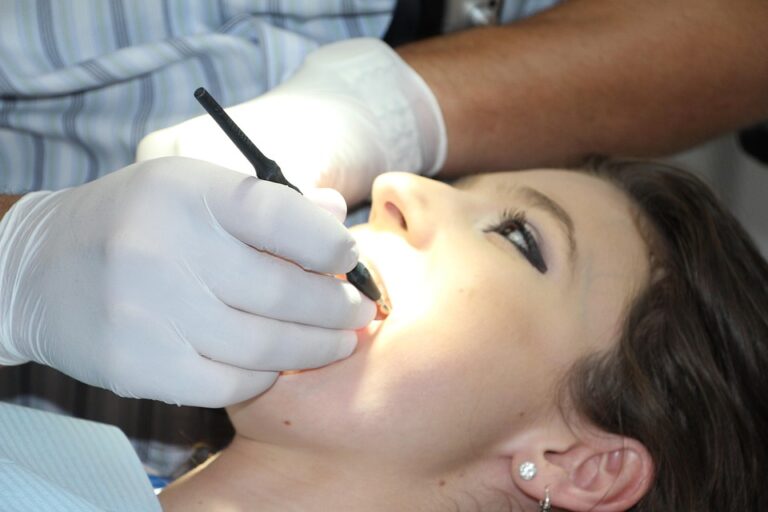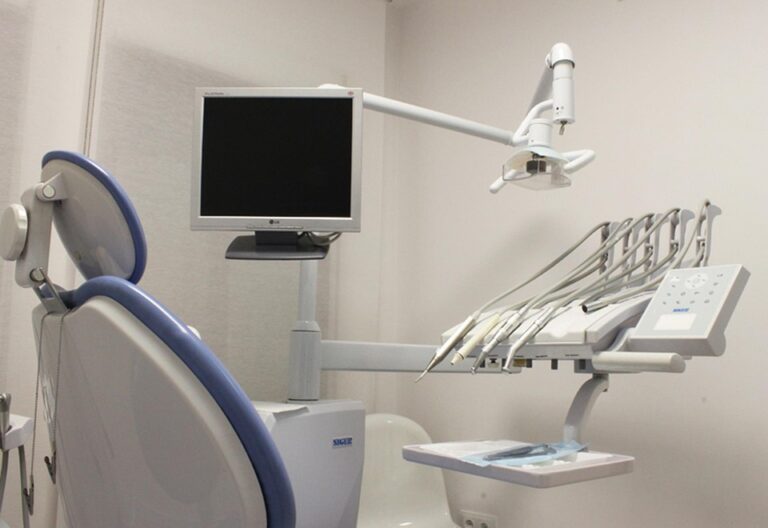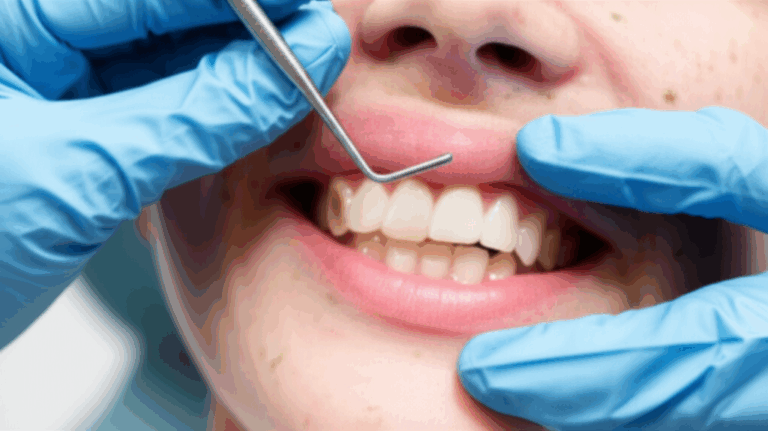
Can Your Dental Problems Cause Blurred Vision? Understanding the Connection
Have you ever had a toothache that won't go away and noticed your eyesight felt a bit strange? Maybe things looked a little blurry, or you felt a weird pressure behind your eye. It's a link that sounds hard to believe, but it's a question many people ask, often in a quiet moment of worry. Can a problem with your teeth really affect your eyesight?
The short answer is yes, it's possible. While it's not the most common cause of vision issues, the link between mouth health and eye health is real and backed up by science. The complex web of nerves, blood vessels, and parts in your head means that a problem in one area can sometimes show up in another, what seems like an unrelated, part of your body.
In this article, we’ll look at the surprising ways your dental health can affect your vision. We’ll explain the science, talk about specific dental problems that can cause eye symptoms, and explain when it's just a small problem versus a serious medical emergency. Knowing about this link is the first step in protecting both your smile and your sight.
In This Article
- How Dental Problems Can Affect Your Vision: Understanding the Mechanisms
- Specific Dental Conditions Linked to Vision Issues
- When to Be Concerned: Recognizing the Red Flags
- Diagnosis and Treatment: A Collaborative Approach
- Prevention: Protecting Your Oral and Ocular Health
- Conclusion: Don't Dismiss the Connection
How Dental Problems Can Affect Your Vision: Understanding the Mechanisms
The idea that a toothache could blur your vision might seem hard to believe, but the way your head and face are built makes a few ways for problems to travel. It's rarely a straight line, but more like a chain reaction.
Nerve Pathways and Referred Pain
Think of your nervous system as a complex highway network. The trigeminal nerve is a main pathway for feeling in your face. It has three main branches that give feeling to your forehead and eyes, your cheeks and upper jaw, and your lower jaw.
Because these nerve branches are all connected, your brain can sometimes get its signals mixed up. A strong pain signal from an infected tooth, for example, can "spread" and be read wrong by the brain as pain or discomfort in the eye. This is called referred pain. You might feel a dull ache behind your eye, sensitivity to light, or even a feeling of blurred vision, all starting from a dental issue.
Spread of Infection and Inflammation
This is where the connection becomes more direct and possibly more serious. The roots of your upper teeth, especially the molars and premolars, are very close to your maxillary sinuses—the air-filled spaces behind your cheekbones.
- Sinusitis of Dental Origin: A dental abscess, which is a pocket of pus caused by a bacterial infection at the root of a tooth, can easily wear away the thin bone separating the tooth root from the sinus. When this happens, the infection can spread directly into your sinuses, causing odontogenic sinusitis. This swelling and pressure in the sinus can push against the bottom of your eye socket (orbit), leading to symptoms like:
- Pain or pressure behind the eye
- Watery eyes
- Blurred vision
- Vascular and Lymphatic Spread: In rarer cases, bacteria from a severe dental infection can get into the bloodstream or lymphatic system. From there, it can travel to other parts of the body, including the sensitive parts of the eye, causing swelling and vision problems. This is part of why keeping good oral hygiene is very important for your whole body's health.
Muscle Tension and Neuromuscular Linkages
Your jaw, head, and neck muscles are all connected. Conditions like Temporomandibular Joint (TMJ) disorder or bruxism (long-term teeth grinding) can cause the muscles of your jaw to become strained and swollen.
This constant tension doesn't just stay in your jaw. It can spread out, causing:
- Tension Headaches: Often felt in the temples and behind the eyes.
- Eye Strain: The muscles around your eyes may also become tense in response, leading to a feeling of tired, strained eyes.
- Perceived Blurriness: While your vision itself might not be actually blurry, the constant strain and pain can make it hard to focus, creating a feeling of blurriness.
Think of it like a chain reaction. A problem in the jaw joint (TMJ) creates a ripple effect of muscle tension that can, in the end, affect how your eyes feel and work.
Specific Dental Conditions Linked to Vision Issues
While many dental issues can cause discomfort, a few are more commonly connected with referred pain and vision problems.
Tooth Abscess and Severe Infections
An abscessed tooth is a serious infection that can have widespread effects. When bacteria get into the pulp (the inside part of the tooth with nerves and blood vessels), it can lead to a pocket of pus at the root tip.
- Why it affects the eyes: If the abscess is in an upper tooth, its closeness to the sinus and eye socket is a big worry. The swelling and inflammation can put direct pressure on the nerves and blood vessels that go to the eye.
- Symptoms to watch for: A severe, throbbing toothache, sensitivity to hot and cold, pain when chewing, swelling in the cheek or gums, and a bad taste in your mouth. If these come along with eye pain, pressure, or blurred vision, it's a clear sign to get dental care right away.
Temporomandibular Joint (TMJ) Disorders
TMJ disorders are a group of conditions that affect the jaw joint and the muscles that control chewing.
- Why it affects the eyes: The muscles used for chewing are near your temples and cheeks. When these muscles are always tight or swollen from TMJ issues or teeth grinding (bruxism), they can cause referred pain and tension headaches that feel like they are coming from behind your eyes. This constant strain can lead to tired eyes and a sense of blurred vision.
- Symptoms to watch for: Jaw pain or tenderness, clicking or popping sounds when you open your mouth, trouble chewing, and frequent headaches or earaches.
Impacted Wisdom Teeth
Wisdom teeth, or third molars, are the last teeth to come in, usually in the late teens or early twenties. When they don't have enough room to grow in right, they become "impacted."
- Why it affects the eyes: An impacted wisdom tooth can press on nearby nerves, including branches of the trigeminal nerve. It can also get infected or grow a cyst, leading to swelling and pain that can spread towards the eye, ear, and head.
Periodontal Disease (Severe Gum Disease)
While not as likely to cause sudden blurred vision, advanced gum disease (periodontitis) is a state of long-term swelling.
- Why it affects the eyes: The bacteria and things that cause swelling from severe gum disease can get into the bloodstream. This swelling throughout the body has been connected to many health problems, including heart disease and diabetes, both of which have big effects on eye health. While the link isn't as direct as an abscess, keeping your gums healthy is part of supporting your overall health.
Rare But Serious Ocular Complications from Dental Infections
In very few cases, a dental infection can spread and turn into a medical emergency. It is very important to spot the signs of these conditions.
Orbital Cellulitis
This is a serious infection of the fat and muscles around the eye. It can happen when a severe sinus infection, often starting from an upper tooth abscess, spreads into the eye socket.
- Symptoms: This condition happens fast and includes:
- Painful swelling and redness of the eyelid
- Bulging of the eye (proptosis)
- Pain with eye movements
- Double vision or blurred vision
- Fever
- Action: Orbital cellulitis is a medical emergency that needs you to go to the hospital right away for IV antibiotics to prevent losing your sight for good or the infection spreading to the brain.
Cavernous Sinus Thrombosis (CST)
This is a very rare but can be deadly condition where a blood clot forms in the cavernous sinus, a group of veins located behind the eye sockets. Infections from the face, teeth, or sinuses can sometimes lead to CST.
- Symptoms: This is a very serious emergency with severe symptoms, including:
- A sudden, bad headache
- High fever and chills
- Swelling and bulging of one or both eyes
- Muscles that move the eye that can't move
- Fast vision loss
- Action: If you have these symptoms, especially after a recent dental or facial infection, go to the ER right away.
When to Seek Professional Help: Recognizing the Red Flags
It’s important to know when to call your dentist and when you might need to see an eye doctor or even visit the emergency room.
See your dentist if you experience:
- A toothache that won't go away or sensitivity
- Swelling in your gums or jaw
- Pain that seems to spread from your tooth to your ear, temple, or eye
- Jaw pain, clicking, or popping
See your ophthalmologist if you experience:
- Any new or blurry vision for no clear reason
- Eye pain or redness
- Double vision
- Sensitivity to light
Go to the nearest emergency room immediately if you have:
- Sudden and severe vision loss
- A bulging or protruding eye
- You cannot move your eye in all directions
- High fever, severe headache, and facial swelling, especially around the eye
Diagnosis and Treatment: A Collaborative Approach
Because the symptoms can be similar, figuring out the main cause of your eye issue often needs teamwork between different healthcare professionals.
- For Dental Infections: This usually involves antibiotics to control the infection, followed by a treatment to fix the problem, such as a root canal to save a damaged tooth or an extraction if the tooth cannot be saved.
- For TMJ Disorders: Treatment can range from a custom-made night guard from a specialized dental lab for retainers to lessen grinding, to physical therapy, stress management, or even Botox injections to relax the jaw muscles.
- For Severe Cases: If an infection has spread, like in orbital cellulitis, a hospital stay and IV antibiotics are needed.
Prevention: Protecting Your Oral and Ocular Health
The best way to prevent these complicated issues is to keep your mouth very healthy.
- Brush and Floss Daily: This is a must-do. Remove plaque and bits of food before they can cause decay and gum disease.
- Regular Dental Check-ups: See your dentist every six months for a professional cleaning and exam. This lets them find problems like cavities or gum swelling before they get bad.
- Don't Ignore Pain: Tooth pain is your body’s alarm system. Ignoring it can let a small, treatable problem turn into a major infection that can affect more than just your mouth.
- Manage Stress and Grinding: If you clench or grind your teeth, talk to your dentist about a night guard to protect your teeth and jaw from too much pressure.
Conclusion: Don't Dismiss the Connection
While it may seem strange, the link between your teeth and your eyes is very real. A toothache that won't go away that comes with blurry vision, eye pressure, or headaches isn't something to ignore. In most cases, it's a sign of referred pain or muscle tension that can be fixed by treating the dental issue. However, in rare cases, it can be a warning sign of a serious infection spreading toward your eye.
The main point is to listen to your body. If you're having both dental and vision symptoms, don't try to figure it out yourself. Make an appointment with your dentist and, if you need to, your eye doctor. A team effort is the best way to get a correct diagnosis, good treatment, and make sure both your smile and your vision stay healthy for years to come.








